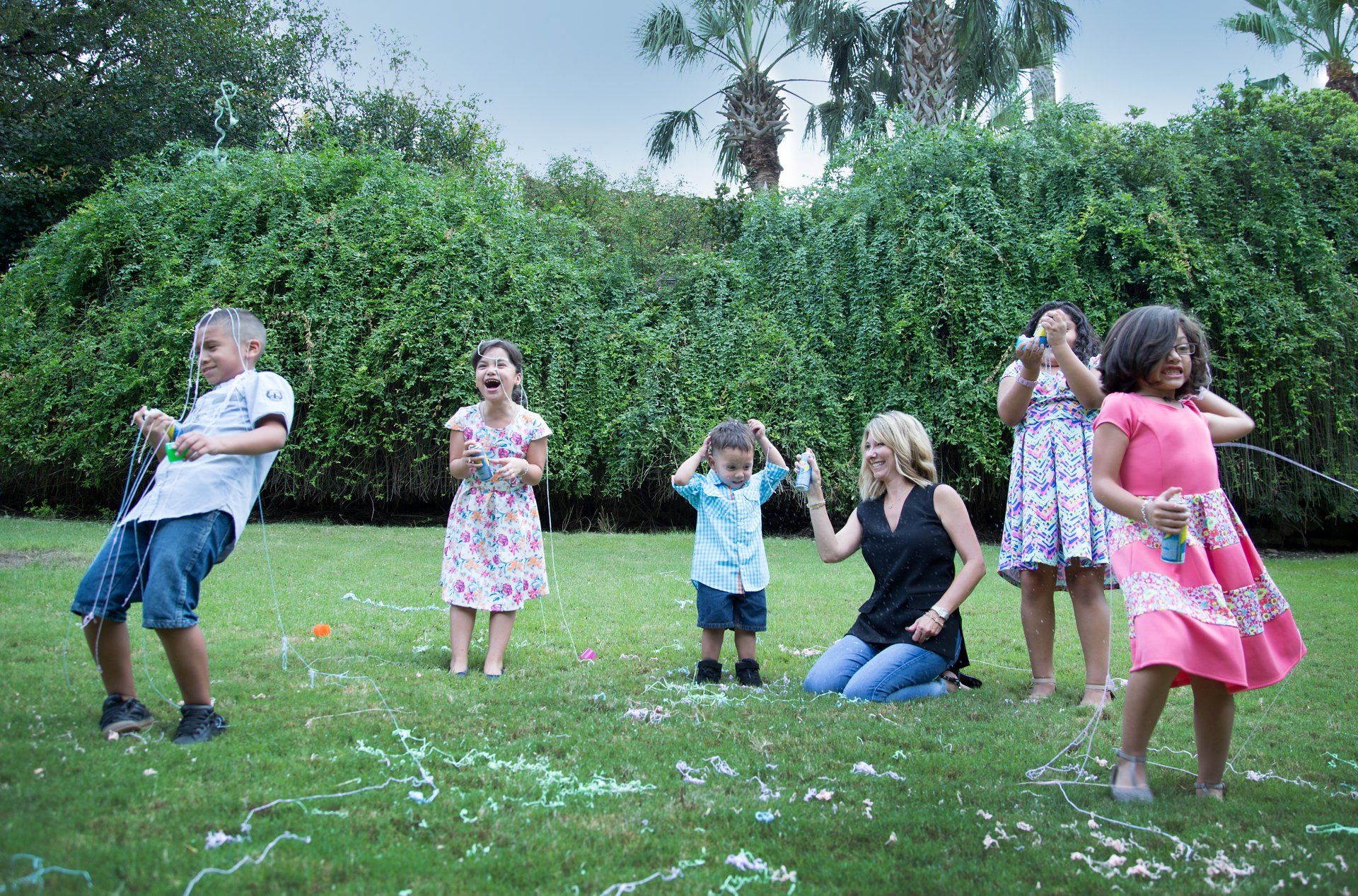Story of Hope: Shirley Bratton
Advocate Impact Story
I moved to San Antonio in 2015 and became a CASA almost immediately upon arriving. I completed my first case and it successfully ended in adoption. I decided I was ready for my next case and discussed this with my supervisor. I had a feeling or a sense from God that I would be helping 5 children (and to be honest I thought that was a crazy idea!). I told my supervisor what I had envisioned and she stated “Do you know we just received a special request from the judge requesting a CASA for 5 children!?” And so the journey began with The Five Little Angels.
I signed onto the case on October 19, 2020 to advocate for Jacob (16), Jack (15), Sandra (14), Grace (13), and Katie (12). They were PMC to the state and their parents’ rights had been terminated. Two were in a shelter, two in a foster home, and one in an RTC. The goal was adoption (and of course to keep them together) but I also knew it was difficult to get teenagers adopted (much less five) but I did not want them to age out of the system before they got the love and support they deserved. After speaking with the children and getting to know them individually, I learned that being adopted together was not what they wanted.
This case was referred to be a Collaborative Family Engagement case, the goal of CFE is to work together with CPS to find families or friends so that children can connect and form lifelong healthy relationships with them. During these CFE meetings we discussed how the children were doing and what the barriers to adoption were. I spoke with my CASA Supervisor and expressed that I did not feel it was in their best interest for them to be adopted together. I communicated this information with the CPS worker as well, whom I had and have a fantastic working relationship with. I was a little hesitant to articulate this to the CFE team as this would be contrary to what we all believed to be the goal. To my surprise everyone was on board and agreed this would be in their best interest and would allow them to flourish in a home where they can get one on one attention. I continued to make sure the children stayed connected, while helping to see if any family members could be found to play an active role in the children’s life. This was a lot of work, time, effort and energy but I was dedicated to doing that work.
Fast forward to May of 2021 Jacob and Jack were now placed in a foster to adopt home with a wonderful family. They were thriving and I was able to see what love and care can do for a person. Grace and Katie were also in a foster to adopt home but Sandra expressed to me that she was not ready to be adopted and Grace was. I was so proud of both children for knowing what they wanted and speaking up for their desires. This just goes to show how, as a team, we created an environment where the children felt safe to share their thoughts, feelings, and emotions.
I believe my purpose on this case was to keep the children connected and to be their voice. On September 10, 2021 Jacob and Jack were officially adopted and on November 10, 2021, just two months later, Grace was adopted by her foster family! What a success, 3 out of the 5 children found their forever home. I am still working diligently to achieve permanency for the other two. Katie is currently in a foster to adopt home and is doing very well. Sandra still has some challenges but I continue to provide love and support until they too achieve adoption. These children are resilient and I know their experiences of trauma and neglect will require continuous healing. I thank God for using me as a vessel to help The Five Little Angels move from harm’s way to safety and for organizations like CASA. We will continue to advocate for the lives of children!









